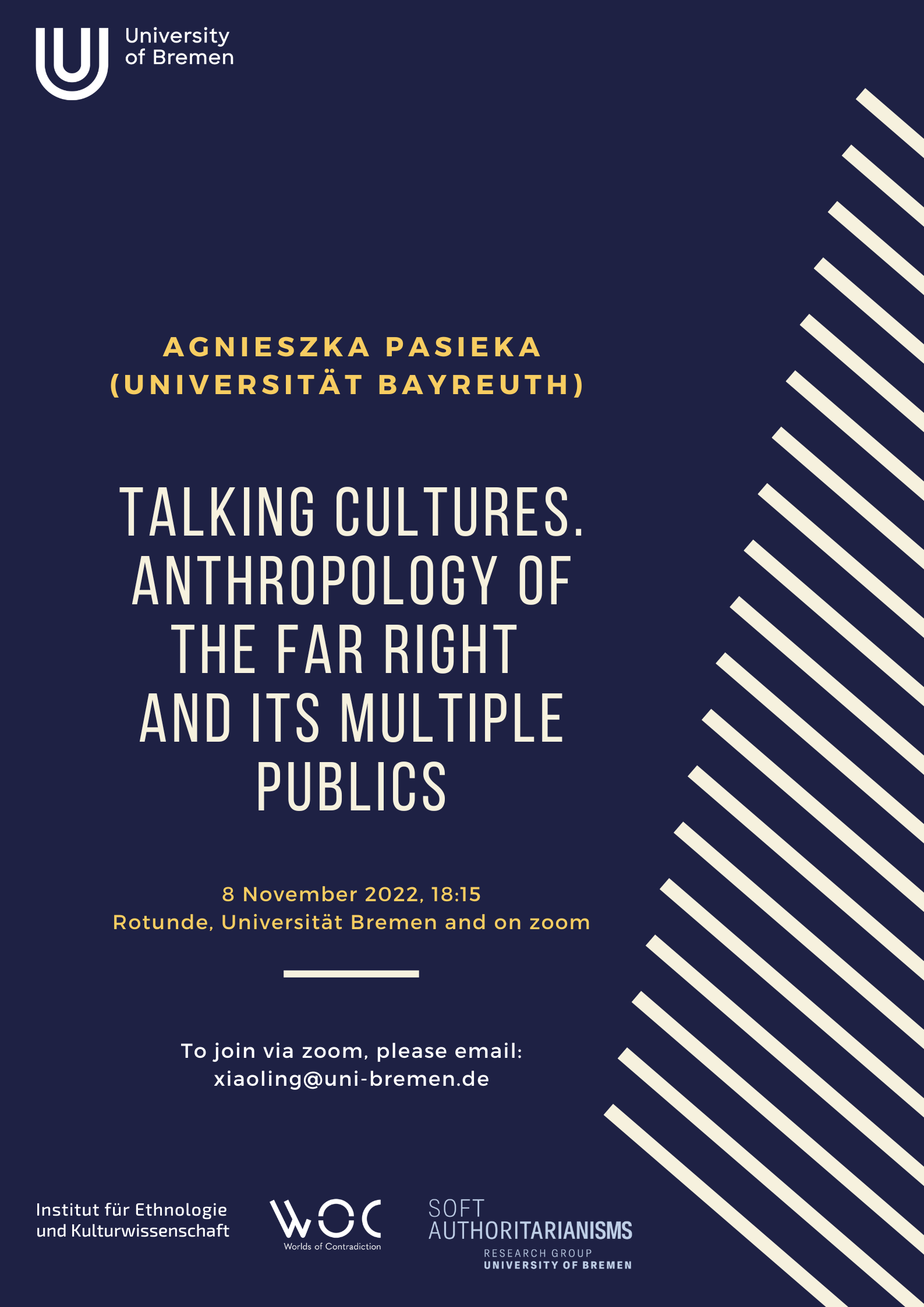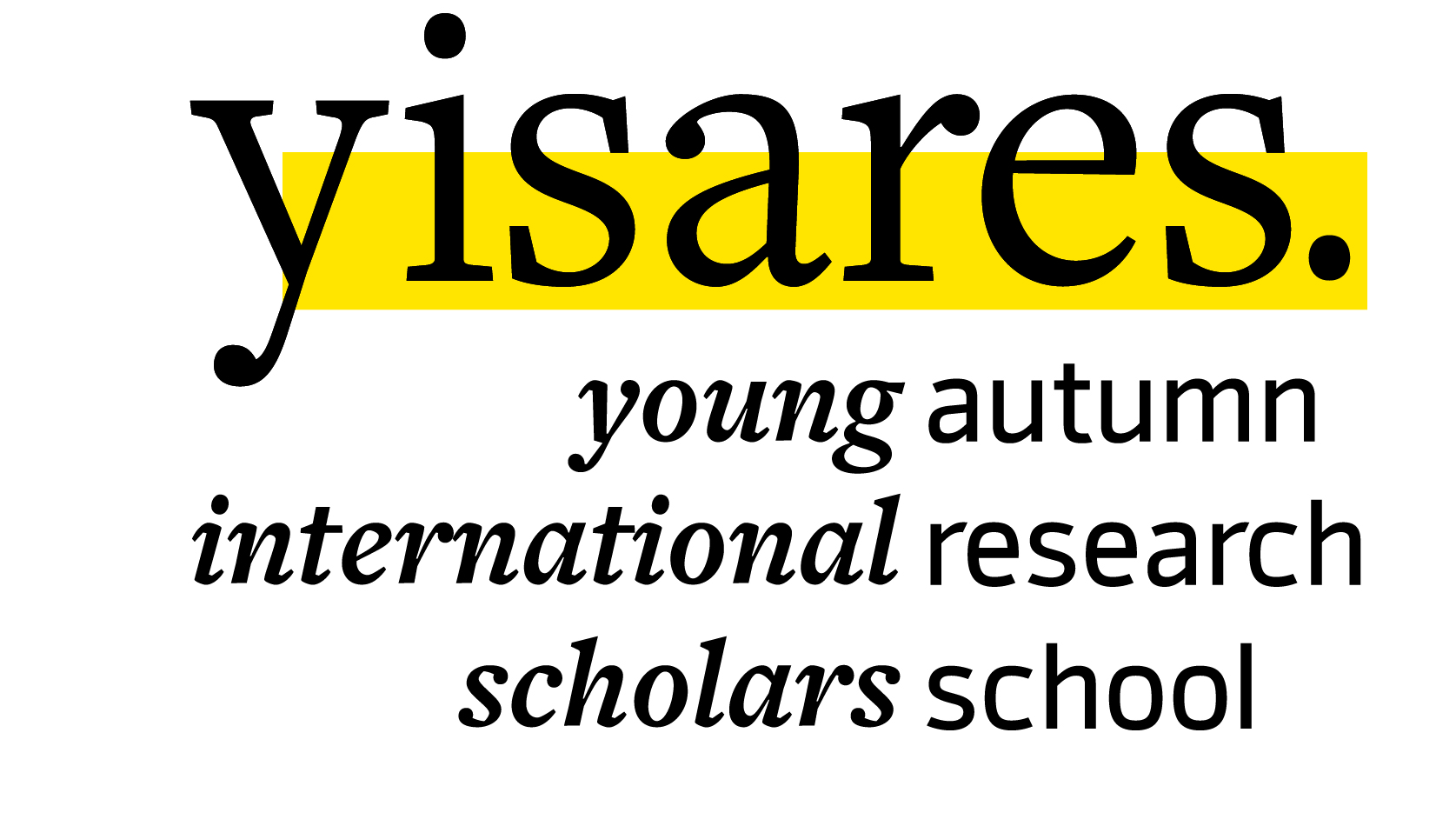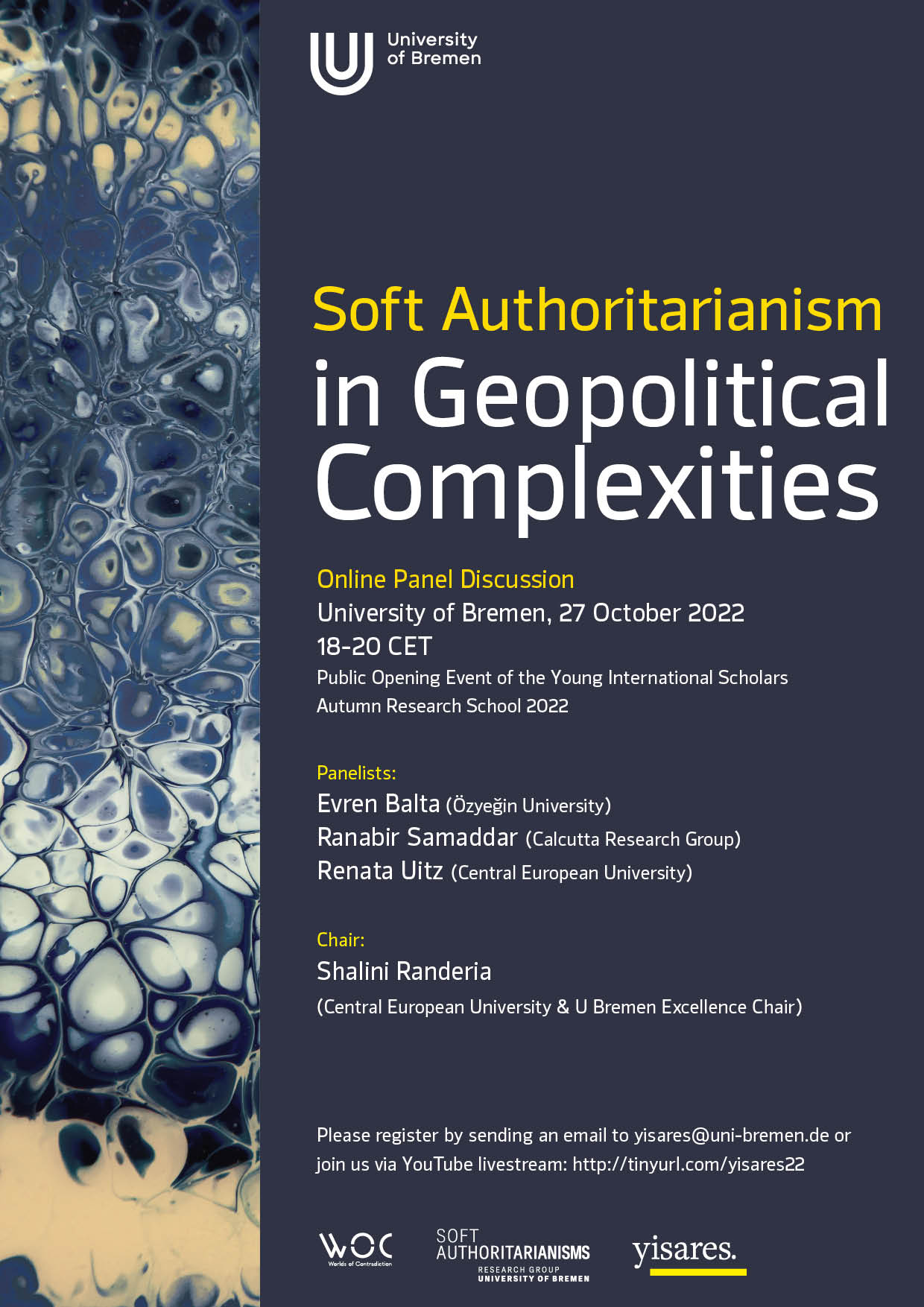Upcoming Activities
No upcoming activities at the moment. Please check again soon.
Past Activities
Panel discussion Borders, Diversity and Citizenship in India
Anti-Genderism in France and Germany - a Transnational Illiberal Practice?
A talk by Jonas Trochemowitz and Hagen Steinhauer at the International Conference “Tracing Forms of De/Marginalization”
Anti-genderism denotes discourses and movements that present gender and sexuality within feminist and lgbtqia+ contexts as dangerous ideologies (see Hark and Villa 2017). In France, one of the main political actors that tries to implement an anti-genderist agenda is the Manif pour Tous. Established in 2013, this movement aims at preventing the legalization of same-sex marriage and adoption rights. They also oppose what they call ‘gender ideology’. In 2014, the German equivalent Demo für Alle came into existence, adopting the political practices of Manif pour Tous.
Examining these two case studies from France and Germany, we present a comparative discourse analysis of both movements. More specifically, we highlight the differences and similarities in their self-positioning with respect to sexuality and gender. To this end, we use corpus analytic methods to analyze the organizations’ topoi and argumentative strategies (see Wengeler 2003). We argue that both movements instrumentalize the natural and social sciences (especially biology) to disqualify gender studies as a threat to traditional family values and the integrity of the nation. In this respect, they conflate illiberal reproductive politics and anti-intellectualism with racist stances on issues of migration (see Fassin 2020).
This collusion is a key characteristic of current soft authoritarian attacks on liberal democracy. For instance, the illiberal transformation of several European states is marked by an inherently gendered modus operandi where anti-genderism plays a vital role in uniting far-right, conservative and clerical actors behind one umbrella term (Grzebalska & Pető 2018).
Majoritäre Identitätspolitiken als soft-autoritäre Herrschaftspraxis-
Vortrag von Hagen Steinhauer im Rahmen des Wiener Forum interkulturellen Philosophierens
Eine Teilnahme an der Veranstaltung ist auch per Video-Stream (ohne aktive Teilnahme an den Diskussionen) möglich; den Link finden Sie zeitnah auf der Homepage der WiGiP.
Open session: “Citizenship and social movements in the context of criminalization of migration and mobilities”
Talk by Jens Adam: “On moral community and difference. Majoritarian identity politics as soft authoritarian mode of governance” as a part of the CrimScapes project’s two-day seminar ‘Criminalisation and Citizenship’.
Open session on “Citizenship and social movements in the context of criminalization of migration and mobilities” with
Jens Adam: On moral community and difference. Majoritarian identity politics as soft authoritarian mode of governance
Agata Dziuban: Navigating criminalisation: sex work, mobility and contested citizenship
Jérémy Geeraert: Impacts of criminalisation on activism. The case of search and rescue in the Mediterranean Sea
Moderation: Juulia Kela
Online participation is possible – the link will be provided upon registration. To register, please complete this form.
Moralische Gemeinschaft und Politiken der Differenz. Rassifizierung als sanft-autoritäre Herrschaftspraxis
Demokratie und Rechtsstaatlichkeit sind seit einigen Jahren in das Zentrum politischer Auseinandersetzungen in Polen gerückt. Eine durch mehrere Wahlsiege legitimierte Regierung initiiert Politiken und mobilisiert Diskurse, die demokratische Prinzipien und Institutionen graduell aushöhlen. Durch das Zusammenwirken einer Vielzahl, mitunter sehr kleinteiliger, Eingriffe und Veränderungen verschieben sich die politischen Koordinaten sukzessive zum Nachteil der politischen und gesellschaftlichen Opposition. „Demokratie“ als Regierungsform wird nominell nicht in Frage gestellt, sie wird aber zunehmend zur Fassade hinter der sich eine sanft-autoritäre Transformation abspielt.
Mich interessiert, wie es hierbei gelingt, Loyalität und Zugehörigkeit herzustellen. Hierzu frage ich nach den Adressaten oder Zielobjekten sanft-autoritärer Politiken und Sprechweisen. Das Argument lautet, dass diese Regierungstechnik in erster Linie weder auf Gesellschaft – und somit auf einen Ausgleich zwischen unterschiedlichen Gruppen und Interessen – noch auf Individuen – deren Potenziale und Eigenverantwortung es zu fördern gälte – ausgerichtet ist. Sanft-autoritäres Regieren zielt stattdessen auf die Erschaffung einer moralischen Gemeinschaft. Durch die selektive Zuteilung von Ressourcen, Anerkennung, Verpflichtung und Dankbarkeit wird das Kollektiv der „berechtigten Polen“ politisch konstruiert und affektiv abgesichert. Familien‑, Geschichts- oder Migrationspolitiken lassen sich dann daraufhin untersuchen, wie sie dieses Kollektiv „rein“ zu halten versuchen, seine Grenzen hingegen scharf markieren.
Diese Politiken der Differenz werde ich anhand meiner ethnografischen Beobachtungen zu jüngeren Auseinandersetzungen um Flucht, Migration und Grenze exemplarisch analysieren. Flüchtende und Migrant_innen aus dem Globalen Süden, die seit dem Sommer 2021 über die belarusische Grenze Zugang nach Polen suchten, wurden zum Zielobjekt von Entrechtung, staatlicher Gewalt und medialen Hasskampagnen. Die Regierung und ihre medialen Verbündeten versuchten diese Praxen durch einen kategorialen Ausschluss der Schutzsuchenden als legitim, wenn nicht sogar als notwendig, erscheinen zu lassen. Diese Prozesse der Rassifizierung möchte ich als Teil einer sanft-autoritären Herrschaftspraxis untersuchen: Sie schaffen antagonistische Andere und etablieren hierdurch zugleich eine durch Abwehr verbundene moralische Gemeinschaft, der gegenüber allein die Regierung Verpflichtung zeigt.
Wenn Sie an dieser Veranstaltung online teilnehmen möchten, wenden Sie sich bitte an Elisabeth Wolff unter e.wolff(at)stud.uni-goettingen.de
Exclusionary Inclusions: Race in (Trans)national imaginaries

Discussion with
Dr. Giulia Pelillo-Hestermeyer (U Heidelberg)
and
Dr. Deborah Nyangulu (U Bremen)
Chair: Hagen Steinhauer (RG Soft Authoritarianisms)
The first discussion in WoC’s new Agora format will focus on the exclusionary effects of contemporary discourses and politics of inclusion. Taking the globalization and mediatization of the Black Lives Matter movement as a starting point, the event will discuss transcultural negotiations of anti-racism against the backdrop of different colonial histories. The two discussants will approach these questions from different disciplinary standpoints, including linguistics, transculturalism, and African European Studies.
The aim of Agora is to think together and further academic exchanges across disciplinary boundaries.
Talking Cultures. Anthropology of the Far Right and its Multiple Publics

In her talk, Agnieszka Pasieka aims to reflect on the multiple publics of anthropological scholarship, and more specifically: on the (potential) impact of the anthropology of the far right on various scholarly and non-scholarly audiences. In so doing, her talk engages with some key concepts – such as “culture,” “diversity,” and “identity” – that are central to anthropological scholarship, but which in recent decades have moved beyond the realm of academic debates to mark the terrain of political battles. In engaging with these categories, she sketches the moral-political imaginary of contemporary far-right activists and highlights a troublesome relationship between far-right views and scholarly knowledge.
To join via zoom, pleas email: xiaoling(at)uni-bremen(dot)de
Situating Soft Authoritarianism Between Geopolitical Complexities and Everyday Practices. Young International Scholars Autumn Research School (YISARES) 2022

The Russian government’s war against Ukraine has exposed multiple dimensions and geopolitical faultlines of contemporary authoritarianisms: The systematic hijacking of state institutions and accumulation of wealth through the extraction and capitalization of gas, oil and coal clearly stand out as indispensable preconditions for Russia’s neo-imperialism and military power. The invasion has been accompanied by the dissemination of state-steered lies, disinformation and ethno-nationalist narratives. The remnants of independent media and the political opposition are threatened by a subordinated judiciary. And on a global scale the acquiescence of China and India to Russia’s invasion indicates bolstered alliances between authoritarian and soft-authoritarian governments. Some pundits predict a geopolitical confrontation between an authoritarian block and seemingly re-consolidated “West”. The reluctance of many postcolonial states to support Ukraine facing this attack by its imperial neighbor contributes to currently emerging geopolitical complexities.
These dynamics pose new challenges for any critical engagement with contemporary forms of authoritarianism, which range from fully fledged authoritarian regimes to authoritarian practices within formal liberal democracies. War, securitization and anti-terrorism policies, suppression of movements against social inequalities and inhumane border regimes have time and again brought about violent policing or authoritarian legal and administrative measures also within liberal democracies. However, in past years, we have witnessed an increased dismantling of democracy from within. In a number of countries, such as Turkey, Poland, Hungary or India democratically elected politicians have managed to erode democratic principles, practices and institutions. They attack independent media and put immense effort into bringing courts under their political control. They meddle with constitutional law to impede procedures of accountability and dismantle fundamental human and citizens’ rights and freedoms, to inhibit effective political participation and a functioning opposition. Often these shifts are accompanied by discursive practices variably discrediting migrants, sexual or religious minorities and political opponents. Gradually but systematically the rules of the political game are changed to secure the power of authoritarian governments and leaders, while maintaining a democratic façade.
During this autumn school we will take the emerging geopolitical complexities as entry point to explore and situate these forms of soft authoritarian government anew. We ask whether the current geopolitical situation impedes a further shift towards political rhetoric and interventions hollowing out democratic procedures and institutions. Or does it perhaps offer new opportunities for the tacit introduction of more authoritarian legislation, the mobilization of hate speech and the militarization of public life? What forms of transnational networks and relations of authoritarianisms can we observe?
In different thematic modules we will examine some of the legal, administrative, discursive and digital practices with which democracy is undermined in detail. We will look at how illiberal discourses are normalized, institutions hijacked, laws rewritten, and zones of exception created. We will ask in which way these practices and discourses really manage to cover up their authoritarian intentions and deceive their citizens? And, finally, we will explore the forms and scales of violence hereby engendered.
Throughout the whole autumn school, we will also revisit the different concepts that have been developed to examine the recent conjuncture of populist, anti-liberal and authoritarian trends inside nominal democracies. Do we still dispose of the right vocabulary to analytically dissect the contemporary moment? Or do we need to adjust our conceptual and methodological toolset to make sense of authoritarianisms in exacerbated geopolitical complexities?
Public Panel Discussion: Soft Authoritarianism in Geopolitical Complexities

In this public opening event of our YISARES 2022 autumn school four panelists will reflect on the effects of Russia’s war against Ukraine on soft authoritarian governments and tendencies. On the one hand, they will address geopolitical consequences: In which way has the war shifted the strategic position of countries such as Turkey, India, Poland and Hungary? What new geopolitical alignments and alliances between soft authoritarian and authoritarian governments can be observed? And which critical insights can we gain by scrutinizing the discursive opposition between authoritarianism and democracy fiercely enforced by some Western actors from a postcolonial perspective? On the other hand, the panelists will exemplarily examine the domestic consequences of these geopolitical shifts: How does the war affect soft authoritarian agendas in Hungary, India or Turkey? Do the intensified geopolitical tensions offer new opportunities to push forward rightwing policies, the militarization of public life or the promotion of hate speech in political discourse? Or might new alignments and risks on the international level in some cases rather slow down the authoritarian transformation?
Panelists
Evren Balta (Özyeğin University)
Ranabir Samaddar (Calcutta Research Group)
Renata Uitz (Central European University)
Chair
Shalini Randeria (Central European University & U Bremen Excellence Chair)
To register send a mail to yisares(at)uni-bremen(dot)de or join our Youtube livestream!
Diskussion: Spielräume der Kulturpolitik
Das weltweite Erstarken des Rechtspopulismus und des Autoritarismus, die Einschränkung der Menschenrechte in vielen Ländern der Welt und die Bedrohung zivilgesellschaftlicher Akteure stellt die Mittlerorganisationen der Auswärtigen Kultur- und Bildungspolitik (AKBP), die vor allem zivilgesellschaftlich tätig sind, vor enorme Herausforderungen. Für diese enger werdenden Spielräume hat sich der Begriff der „shrinking spaces“ etabliert. Er bezieht sich darauf, dass Freiheitsräume in den unterschiedlichen Bereichen zivilgesellschaftlichen Handelns – u.a. in Kunst, Medien und Wissenschaft – durch staatliche und andere Akteure eingeengt werden.
Im Zusammenhang mit dem russischen Krieg gegen die Ukraine erfährt der Begriff eine beklemmende Aktualität. Autor*innen, Journalist*innen und Aktivist*innen in Russland, die den russischen Angriff öffentlich als solchen bezeichnen und kritisieren, werden verhaftet oder müssen ihr Land verlassen. Ukrainische Kulturschaffende und Intellektuelle benötigen Unterstützung, um sich in Sicherheit bringen und ihre Arbeit fortsetzen zu können.
Welche Rolle kommt der Auswärtigen Kulturpolitik angesichts dieser Entwicklungen zu? Ist sie nicht gerade unter solchen erschwerten Bedingungen besonders wichtig? Wie kann eine transkulturelle zivilgesellschaftliche Solidarität in Krisenzeiten aussehen? Welche Ressourcen braucht sie, und welches Potenzial hat sie? Kann die Auswärtige Kultur- und Bildungspolitik trotz Mittelkürzungen weiter an ihrem progressiven Kurs festhalten?
Das Panel ist Teil der Dialogreihe: „Auswärtige Kultur- und Bildungspolitik unter Druck“, die gemeinsam mit dem DeZIM (Deutschen Zentrum für Integrations- und Migrationsforschung) organisiert wird.
Mit
DR. JENS ADAM, Universität Bremen
JAKOB RACEK, Leitung Information & Bibliothek am Goethe-Institut, ehem. Leiter Goethe-Institut Minsk
DIMA ALBITAR KALAJI, Autorin (Syrien, Deutschland)
ANTHONY RICHTER, Direktor für Sonderinitiativen bei den Open Society Foundations (OSF), New York
Moderation:
CAROLINE ASSAD, DeZIM-Institut
Organisiert vom Goethe-Institut und dem Deutschen Zentrum für Integrations- und Migrationsforschung (DeZIM)


